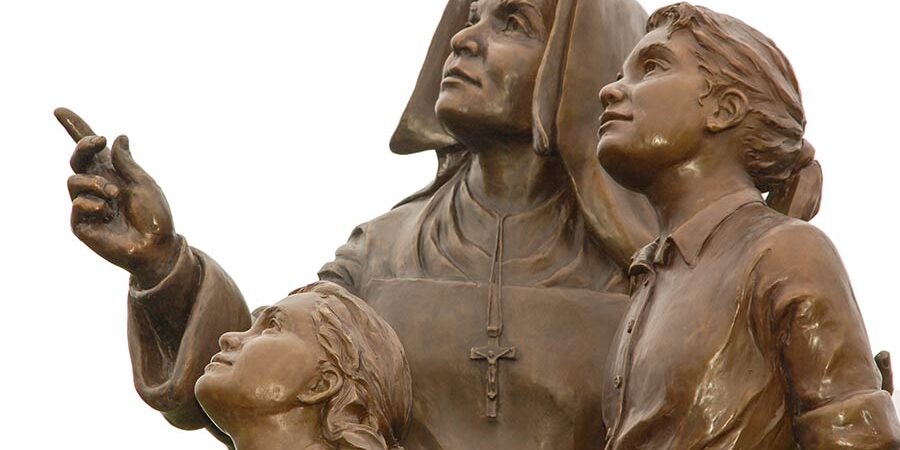Home » Reflections »
Care of Earth: an ascetical practice for our times?
This article is reprinted from the fall 2008 issue of HOPE.
The dictionary tells us that our English word asceticism is derived from an ancient Greek noun meaning “an exercise, a practice or a training program which is entered into with the purpose of arriving at a goal worth striving for.” Originally the word applied to an athlete’s training of the body; later the meaning was expanded to include training of the mind to acquire wisdom. Finally it became associated with the spiritual training designed to help one become a more virtuous person. The difficulties involved in the practice were considered a fair price in exchange for the value acquired!
In the western world, words commonly associated with asceticism are sacrifice, penance, renunciation, self-discipline, self-control, etc.
While all major religions teach a theology of asceticism, the way it is practiced has varied in different cultures and in different periods of history. In the Christian tradition, for example, older readers will remember practices in which all Catholics were expected to engage — such as the requirement to abstain from eating meat on Fridays; to observe certain days with the practice of fasting and abstinence; to prepare for the reception of Eucharist by fasting from food and drink after midnight, etc.
In the 1960s during the Second Vatican Council, Catholic bishops acknowledged that, for many Catholics, practices such as these had deteriorated into mere formalities or legalities and had lost their meaning as exercises leading people to spiritual growth and maturity. Although many of the former legislated practices were dropped from Catholic practice, the bishops reaffirmed the importance of practices of penance in the spiritual life. They recommended that each Catholic freely choose to engage in certain practices of penance which would best help him/her overcome, with God’s grace, all that stands in the way of one’s becoming the person God created one to be. Authentic asceticism does not depend on any legally prescribed action; rather, it should be seen as a call of the Spirit to an individual to respond in a particular way to the loving service of God, one’s self, one’s neighbor and the whole of creation.
Is it possible that in this 21st century the Spirit is calling us to listen to and to find ways to respond to the cries of distress which seem to be rising from our universe? For centuries humans have lived under the illusion that God created the universe for humans to dominate and to use as they wished. In more recent years we have come to recognize that not only have we humans used this living planet, our Earth, but we have also abused it! Daily we read or hear about the effects of global warming, the pollution of our water, air and soil, the extinction of countless species, the cries coming from Earth herself in the form of countless natural disasters! Could it be that all of these phenomena are telling us that something is desperately wrong with the way we humans are relating, not only to one another, but also to the planetary interconnectedness that sustains our very lives? Is the Spirit calling our world to some new ascetical practices? Are we being called to care for our world in such a way that it will still be here for future generations to use and to enjoy?
This issue of HOPE details some of the steps which the Sisters of Providence have taken to move toward one of our goals: to provide hope and healing for our Earth. We invite you, our companions on the journey, to join us in this endeavor in any way that you feel called to participate. We recognize that to work for eco-justice is a very complicated issue. We have all learned to enjoy, and even to expect, the conveniences and comforts which both the Industrial and Technological Ages have continued to provide for us. It is not easy to change our habits or to embrace the inconveniences of recycling, reusing or energy saving, etc. We may easily become discouraged and overwhelmed by the magnitude of the problems and decide that there is nothing we can do! At such times it may be encouraging to reflect on an old bit of advice: “It is better to light one candle than to simply sit and curse the darkness!” On the other hand we can take comfort in the wise words of Saint Mother Theodore Guerin: “We are not called upon to do all the good possible, but only that which we CAN do!”
As eco-justice begins to emerge as the most critical issue of our age, it is time for each of us to ask ourselves “What am I doing to bring hope and healing to Earth? What can I do? What will I do to help restore health to Earth, my home, the place where I live, move and have my being?”

